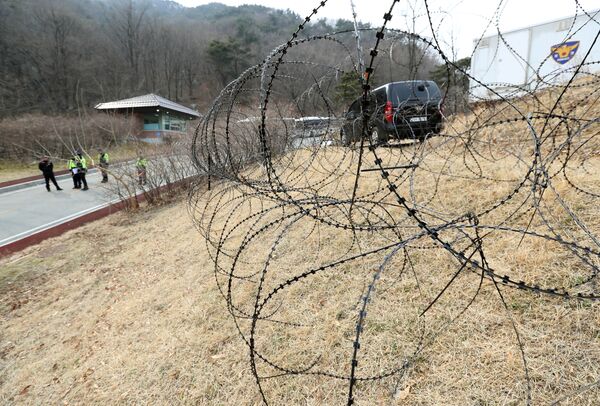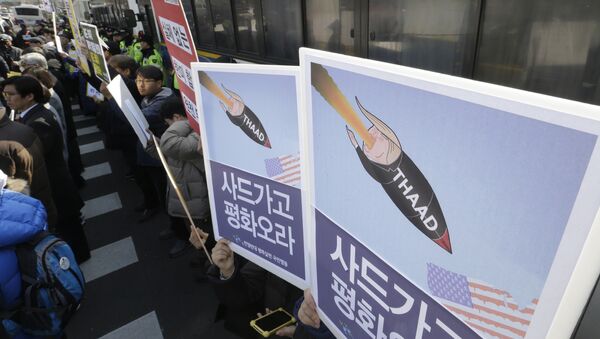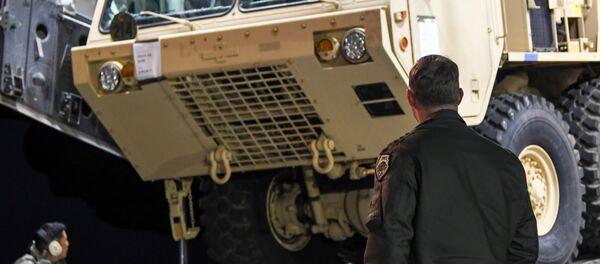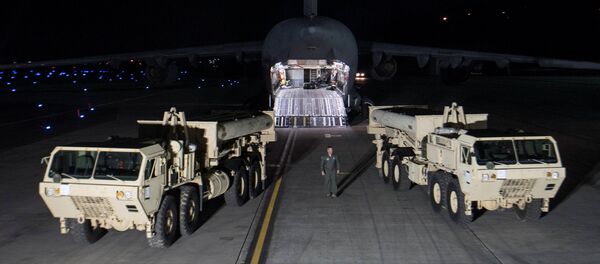According to him, Beijing’s response has been wildly exaggerated due to South Korean media outlets, which misinterpret the Chinese media reports about the Chinese politicians' security concerns over THAAD.
Earlier this month, Chinese media quoted retired Chinese People's Liberation Army (PLA) Gen. Wang Hongguang as saying that China is preparing countermeasures against the THAAD system in South Korea, which involve anti-missile equipment, intended to neutralize signals from THAAD radars.

Commenting on this, Kim Haeseon said that "the South Korean media outlets exaggerate the problem by claiming that the conflict over THAAD has allegedly damaged Seoul's economic ties with China."
He said that there are too many experts on the United States in South Korea, which is why a pro-American point of view prevails in his country.
Kim also pointed to the lack of specific expertise on China in South Korea, where he said "nationalistic anti-Chinese sentiments and the habit of treating China from a pro-American standpoint have long been in place."
"In South Korea, the view is widespread that the conflict over THAAD allegedly led to the deterioration of Seoul's economic ties with China. However, the problem doesn’t only concern THAAD. There are very few experts on China in South Korea, which prevents the South Korean government from developing ties with China," he said.
Kim added that "Seoul should assess the Chinese government's priorities and develop a strategy to bolster cooperation with China."
In this context, he pointed to the fact that "the Chinese government stays in power much longer than that of South Korea or the United States."
Earlier, The South China Morning Post cited PLA air force aviation expert Fu Qianshao as saying that Beijing would send planes near THAAD to obstruct the system's long-range radar signals.
In early March, the United States announced the deployment of THAAD anti-ballistic missile elements in South Korea.
Seoul and Washington first agreed to deploy THAAD in July 2016 amid South Korea's growing unease about the nuclear program of North Korea, which launched its latest four ballistic missiles on March 6.
The system is designed to intercept short, medium and intermediate ballistic missiles during the terminal incoming stage.
Never miss a story again — sign up to our Telegram channel and we'll keep you up to speed!




